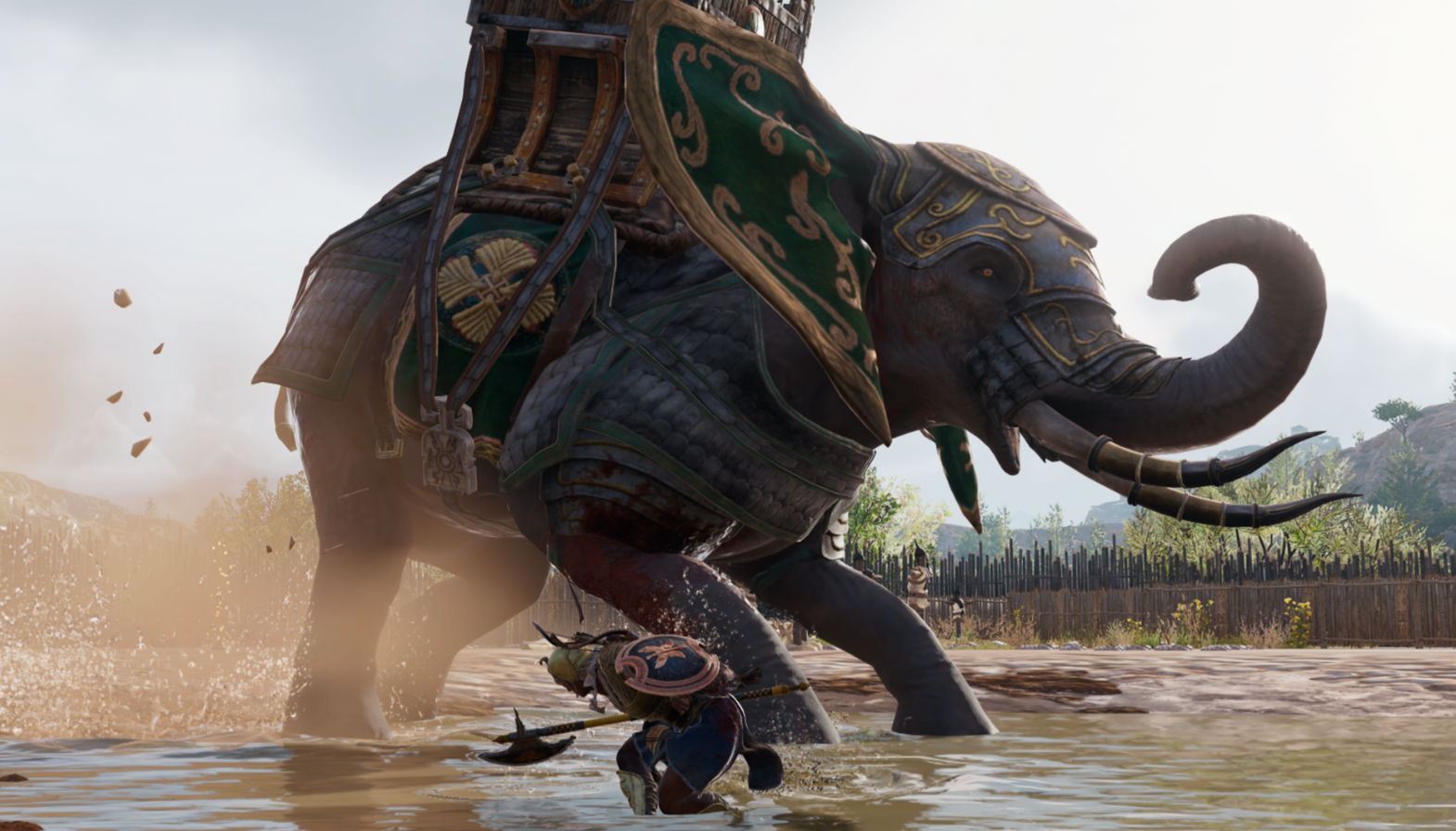Assassin’s Creed Origins Review in 2025
Bayek & Aya
Disclaimer: I don’t play a whole lot of Ubisoft games anymore. The AAA gaming industry is generally speaking, run by massive production companies that run their workers into the ground. Unions are busted before they can get started. Independent Studios partner with a publisher to get funding, get bought out by that publisher, only to be set to working on the next Far Cry, Assassin’s Creed, Halo, Madden, FIFA, Call of Duty or Battlefield. This process, which is commonly referred to as “being sent to the Call of Duty Mines” jacks up the price of games at retail and kills any creative notions passionate developers might have once had. More common now is shoving money and manpower into Live Service Games, even though the market is flooded with them, and with a rare few exceptions, they do persist for long. This leads to servers being shut down and people not being able to play the games they paid money for or into.
All that being said, Ubisoft games are generally tightly designed and feel good to play. They exist more on the spectrum of “games meant to numb you and get more money out of you” than “games meant to inspire you to think or feel”. Sometimes you don’t want to eat healthy. Sometimes you want a greasy McDonald’s McDouble. Sometimes someone cooks a decent McDouble and you wonder what that burger-slinger could do if he was in an actual kitchen with healthy ingredients.
Assassin’s Creed Origins came out in 2018. I picked it up on sale with it’s DLC for around $15 seven years after launch. I had fond memories of playing the first Assassin’s Creed game on my Xbox 360 in high school, and seeing as “Origins” is in the title, I thought it might be a good one to pick up and play for the sake of that great opium of the 2020’s, nostalgia.
Bayek & Cleopatra
Also there’s elephants
There’s not really a lot of nostalgia to be found for fans of AC1 who jump into AC Origins. The progressive unlocking of new abilities and tools is replaced by a gear progression system. It also includes a very basic upgrade system for certain stats using resources collected from picking through jars or looting corpses. Weapons can be upgraded at a blacksmith to make number go up, but there’s also the chance you’ll loot the exact same item at a higher level sometime in the near future. Unlocking new abilities and tools is done through a leveling system with attribute points. There are few transitions or loading screens in the open world, allowing you to wander where you’d like, current player level be damned. The gameplay feel is good.
That being said, if you don’t feel like actually playing the game, Ubisoft offers you multiple chances to buy your way to level 45 with real world currency. Other “time saver” purchases available are maps to certain hidden locations and actual in-game crafting materials. This practice strikes me as, in true AAA fashion, a real money-first, quality-second move. There is something to be said for the option for people who just want to dress up their character in fun new clothes and feel like a badass for some thirty plus hours. I just don’t see the reason in it for the player. You already bought the game- why do you want to pay money to not play part of it? Doesn’t that speak of bad, drawn-out design on the developer’s part?
Moving on to the more positive aspects, the two things I really enjoyed about Assassin’s Creed origins were the characters and the art design. To their credit, Ubisoft has generally done a rather spectacular job with each Assassin’s Creed release in trying to make their cities and environments relatively historically accurate without sacrificing gameplay. This is a delicate balancing act that I could find few glaring flaws in. For a game that was released on the PS4 and running on a PS5, it also looks very good for its age. The story takes place ~47 BC, following the Egyptian civil war between Cleopatra and her brother-husband Ptolemy. Julius Caesar makes appearances as well. More enjoyable than either of these depictions were the protagonists, Bayek and Aya. Shortly before the beginning of the story, Bayek and Aya lost their son at the hands of a murderous cult. You play most of the time as Bayek, who is a Medjay, in this world a sworn protector of the Egyptian people. In spite of his revenge motivation, Bayek interacts with people, talks to them like people, offers to help with their problems.
Bayek displays strength not only through combat, but primarily in the way he protects those who cannot protect themselves, or else are too lost to see what they could possibly do. There was one side quest in particular where Bayek comes across a woman weeping at the top of a cliff, ready to throw herself off after her husband died to a scorpion sting. Bayek, empathizing, understanding loss, talks the woman down, walks her away from the cliff to start a new life back in her home city. It won’t be the same, and the pain of loss is something she’ll have to learn to live with, but he helps her choose to live.
The story however, being worked on by a team of writers, does have it’s wandering pace, not helped by the many wanderings and side activities available throughout the land of Egypt. It begins with you wondering how this relates to the Assassin Order of previous titles, and only seems to explain it towards the latter third of the story. I found myself enjoying the game more when I prioritized the main story first. I thought Bayek and Aya’s romance, the damage done to their bond by the loss of their son, resolved well. It felt human with aspirations of an actual greater good. I empathized with the protagonist most of the time, and to me that’s a mark of good writing.
If you’re looking to turn your brain off for fifty plus hours, I recommend picking up Assassin’s Creed Origins on a sale. The gameplay is solid, it runs smoothly on modern consoles, and the art design is such that there is a whole lot to see.



